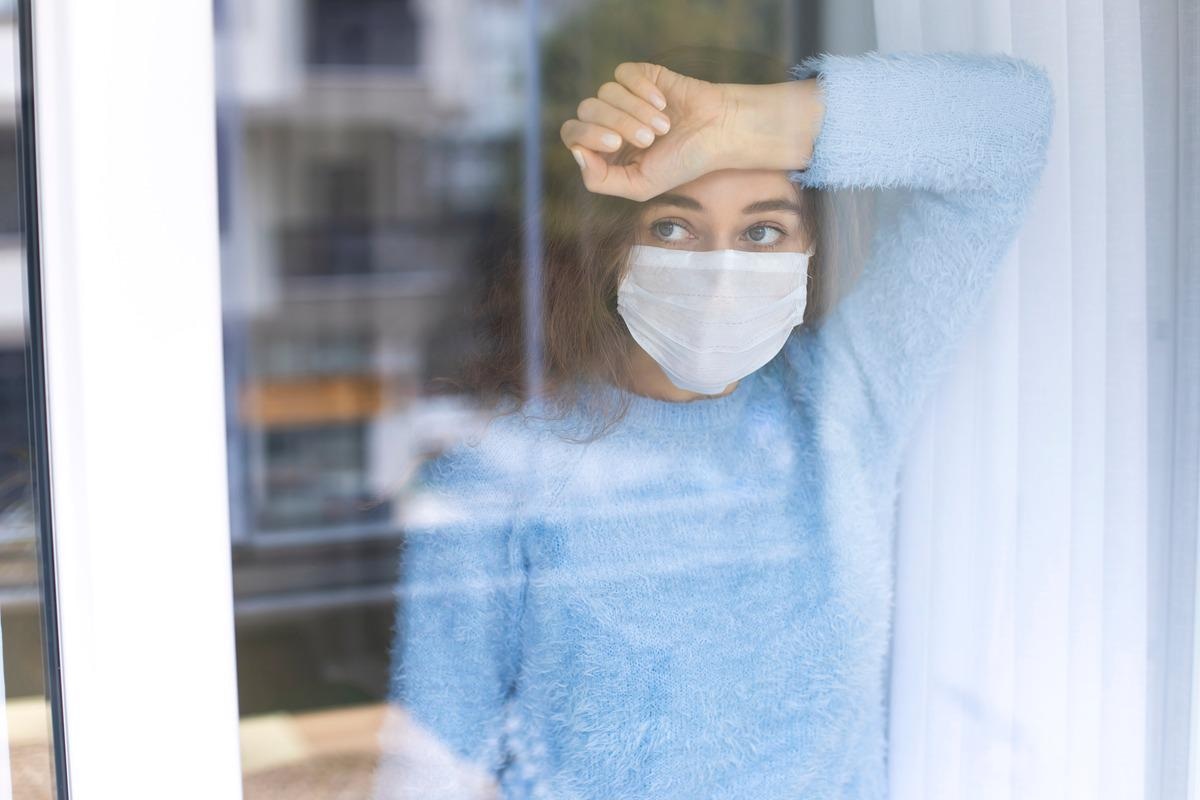People were less likely to seek medical help for self-harm and suicidal behavior during the coronavirus disease 2019 (COVID-19) pandemic, finds new research published in the medRxiv* preprint server.
In the first half of 2021, there was an overall reduction in health services for self-harm behaviors.
 Study: The impact of the COVID-19 pandemic on health service utilisation following self-harm: a systematic review. Image Credit: Ahmet Misirligul/Shutterstock
Study: The impact of the COVID-19 pandemic on health service utilisation following self-harm: a systematic review. Image Credit: Ahmet Misirligul/Shutterstock
Study details

 This news article was a review of a preliminary scientific report that had not undergone peer-review at the time of publication. Since its initial publication, the scientific report has now been peer reviewed and accepted for publication in a Scientific Journal. Links to the preliminary and peer-reviewed reports are available in the Sources section at the bottom of this article. View Sources
This news article was a review of a preliminary scientific report that had not undergone peer-review at the time of publication. Since its initial publication, the scientific report has now been peer reviewed and accepted for publication in a Scientific Journal. Links to the preliminary and peer-reviewed reports are available in the Sources section at the bottom of this article. View Sources
The team underwent a systemic review of all studies looking into the prevalence of self-harm and suicidal behavior during the COVID-19 pandemic. They collected relevant studies published from January 1, 2020, to September 7, 2021.
Using health services included visiting an emergency room, going to a primary care doctor, seeking help for mental health, and other secondary healthcare services intended for people who self-harmed or who attempted suicide.
Studies were excluded if they only measured suicidal ideation, the study focused on a specific physical or psychiatric diagnosis, study with pre-pandemic observation or measurements, studies with proportions but not absolute figures of self-harm.
A total of 51 studies met the inclusion criteria. Of the 51, 42 were peer-reviewed articles. They included a diversity of healthcare services in the data collection, including presentation to emergency rooms, surgery admissions, children’s hospitals, primary care, ambulance calls, psychiatry referrals, and more.
However, most of the data came from high-income countries, making it difficult to determine the impact the COVID-19 pandemic has had on self-harm visits in middle- and lower-income countries.
Fewer visits to healthcare services
Fourty-seven percent of studies reported significant reductions in presentations to healthcare services during the pandemic. The fewest visits occurred in the months before August 2020.
Six studies found a range of 17% to 56% fewer presentations to hospital and other healthcare settings. Four others recording the number of visits for self-harm behavior in the United Kingdom reported a 26% to 44% reduction in healthcare services.
In contrast, one research study in the United States found a 6% increase in visits to the emergency department. However, the researchers note this study had a narrow definition of self-harm, only including data from self-harm episodes that constitute a suicide attempt.
About 29% of studies reported increases in healthcare services for self-harm behavior however, the studies were low quality, such as having low sample sizes.
Of the 51 studies, 46 had follow-up data up to a max of 8 months since the first pandemic wave (March to October 2020). In two studies, follow-ups revealed an 8% to 30% reduction in healthcare visits for self-harm.
Changes in healthcare services for self-harm behavior
About 84% of studies came from high-income countries. Of the 51 studies, 7 were from upper-middle-income, middle-income, or lower-middle-income countries.
In a study conducted in Sri Lanka reported researchers reported a 32% decrease in hospital visits for self-poisoning compared to the number of visits before the pandemic.
Another study in Nepal reported an increase of 44% of presentations of self-harm behavior during early pandemic stages compared to the same time last year. The results suggest that the rate of self-harm was high during lockdowns.
There were 18 studies that looked at self-harm behavior in children and/or young people. One study found that in April 2020, 71% of emergency departments across 49 states received visits to the hospital for self-harm behavior from adults between the ages of 18 and 25 years.
When looking at presentation rates through March 2021, there was an increased presentation for girls between the ages of 12 through 17 compared to presentation rates in 2019. For comparison, boys and young adults showed similar presentation rates to those recorded in 2019.
Another study from the United Kingdom found greater visits to healthcare services in adolescents between 10 to 17 years old.
These findings are in contrast to those reported in other moderate quality studies using earlier COVID-19 observation periods (up to June 2020) where younger people were found to have significantly fewer self-harm presentations than in the equivalent period in 2019,” explained the team.

 This news article was a review of a preliminary scientific report that had not undergone peer-review at the time of publication. Since its initial publication, the scientific report has now been peer reviewed and accepted for publication in a Scientific Journal. Links to the preliminary and peer-reviewed reports are available in the Sources section at the bottom of this article. View Sources
This news article was a review of a preliminary scientific report that had not undergone peer-review at the time of publication. Since its initial publication, the scientific report has now been peer reviewed and accepted for publication in a Scientific Journal. Links to the preliminary and peer-reviewed reports are available in the Sources section at the bottom of this article. View Sources